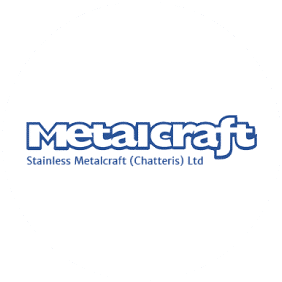Case study
Developing a long-term growth strategy to triple turnover within five years
STAINLESS METALCRAFT
Impact
£ 50m | turnover target increased from £14 million in 5 years
3 | growth opportunity areas identified
Impact
£ 50m | turnover target increased from £14 million in 5 years
3 | growth opportunity areas identified
The challenge
The British Government established the Nuclear Decommissioning Authority in 2004 to coordinate the clean-up of 17 former nuclear sites across England and Wales at a cost of £115 billion over 120 years. The decommissioning of the UK’s nuclear legacy is a challenging task that requires specific expertise to safely, securely and cost-effectively rehabilitate the sites to protect both people and the environment. With expertise and experience in manufacturing high-specification vessels to contain nuclear materials, Metalcraft was ideally suited to play an integral role in the clean-up and management of decommissioned nuclear sites in the national programme.
However, to do this, Metalcraft needed to re-align its business strategy to compete for work under this national programme. In its first step towards becoming a key supplier in the UK’s nuclear decommissioning programme, Metalcraft joined the Civil Nuclear Sharing in Growth (CNSIG) programme. CNSIG is helping UK companies compete for work in the civil nuclear industry by providing intensive business support.
The solution
CNSIG introduced Metalcraft to IfM’s proven prioritisation and strategy development workshops in 2013/14 to help the company re-align, articulate and then implement its business strategy. Working with IfM to develop a shared vision across its management team, Metalcraft identified challenges and key priorities to focus on. Following on from this, in 2016 Metalcraft undertook a ‘strategy refresh’ with IfM, which enabled Metalcraft to quickly and effectively take into account the major shifts in the competitive and macro-economic environment that had evolved since the original prioritisation and strategy development work.
In order to yield the maximum amount of value from the management team’s available time, IfM research-based roadmapping techniques were used in order to update the ‘landscape’ within which Metalcraft operates, where China’s growth rate had halved, oil prices dropped, exchange rates had increased and there were delays to the UK’s Nuclear New Build programme.
A tailor-made structure for the landscape enabled all of the outputs from the earlier workshops to be plotted and updated and their priorities re-assessed in line with the company’s overall strategic vision. IfM Engage’s Duncan Hurlstone facilitated this process, thus giving real continuity to build on the support he had provided back in 2013/14. The landscape also allowed this business-level strategic vision to flow down to divisional/value stream levels along with a balanced set of strategic objectives – all within a single workshop. These objectives, in turn, allowed Metalcraft to cascade this down through the company via some follow on work focusing upon strategy deployment.
Initial project
Realign the business to meet the requirements of the nuclear industry.
Tailoring IfM tools and approaches
Through the original IfM Engage strategy development workshops in 2014, Metalcraft identified three growth opportunity areas in the nuclear industry – decommissioning, new builds and operations. The company analysed the current and predicted future nuclear energy landscape and set a goal to increase its turnover from £14 million to £50 million in five years by targeting nuclear projects across these areas. One critical success factor was the establishment of the ‘High Integrity Container Manufacturing Facility’ at Metalcraft’s Chatteris location.
This was opened on 30 November 2016 and was celebrated with key clients and partners that had supported Metalcraft on its journey. The new facility also provides cutting-edge equipment for training engineers as part of the Fenland Engineering Skills Centre, which is based at the facility. Many of today’s Metalcraft management team came through this apprenticeship programme, which has just celebrated it’s 100th year. Looking to the future there are many valuable opportunities for Metalcraft. The work that IfM Engage has done with Metalcraft has set-up the company to respond to these opportunities while also providing it with ongoing support through access to new strategic tools and approaches developed by IfM research.
The impact
- Metalcraft identified three growth opportunity areas in the nuclear industry – decommissioning, new builds and operations.
- Set a goal to increase its turnover from £14 million to £50 million in five years.
- Established the ‘High Integrity Container Manufacturing Facility’ at Metalcraft’s Chatteris location.

“Bringing the team through the roadmapping process provided positive endorsement and engagement with the actions. These kinds of processes often end with ‘what you could or should do’; this one leaves you with ‘what you are going to do’ – clear actionable output with ‘buy in’. We have seen a clear tangible impact of the work already.”
Austen Adams, Managing Director, Stainless Metalcraft

“Bringing the team through the roadmapping process provided positive endorsement and engagement with the actions. These kinds of processes often end with ‘what you could or should do’; this one leaves you with ‘what you are going to do’ – clear actionable output with ‘buy in’. We have seen a clear tangible impact of the work already.”
Austen Adams, Managing Director, Stainless Metalcraft
About Stainless Metalcraft
Metalcraft is a long-established British manufacturer of high specification stainless steel equipment for some of the world’s most hazardous environments. Its broad expertise spans the design and manufacture of pressure, vacuum and cryogenic vessels and tanks for safety critical applications in industry sectors such as space, medical, marine, research, power generation, oil, gas, petrochemical, waste and water treatment. It produces equipment at all scales, from a 35 metre-long, 140 tonne one-piece tank to vessels of less than 0.5 metres and weighing a few kilos.
The company, which dates back to the 1890s, now employs 160 people at its Cambridgeshire facility in the UK. Metalcraft’s Chinese manufacturing facilities are devoted to production of high volume customer products, providing a truly global capability.
